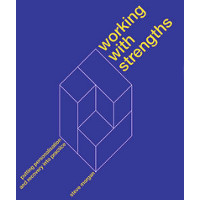Targeted training
 Tuesday, August 27, 2013 at 9:48PM
Tuesday, August 27, 2013 at 9:48PM In health and social care services we have a long tradition of adopting a scatter-gun approach to staff training. Perhaps this is why staff members often feel negative about mandatory training initiatives, or feel that provision is often made as a knee-jerk response to something going wrong. More generous feedback emerges from events that individual's have personally chosen to attend, but these often have little positive ripple effect out into the team they are part of... if you weren't there you simply aren't going to know much about it.
The Practice Based Evidence initiative has long tried to establish a strengths approach to training, as well as to working with service users. The essence is to get all team members to provide a baseline evaluation of the good and not so good practice in their team, against a series of positive statements of best practice that should be relevant to the way they work. Hence, several Practice Based Evidence tools were devised to address different types of teams and different person-centred approaches to working.
In the case of one of the Newham Community Mental Health Teams in 2006 an honest anonymised evaluation of team practice helped to identify the priorities for a subsequent 5-day programme tailored to their needs. This example illustrates how a practice development approach to training initiatives can respond to the needs identified by practitioners themselves, impact on the practice of a whole team, and engage people more in the process of change. This is how a strengths approach can apply as much to team development as it should do for working with service users. See also Take a picture of this for a larger initiative following a similar approach but capturing the evidence of positive change.







